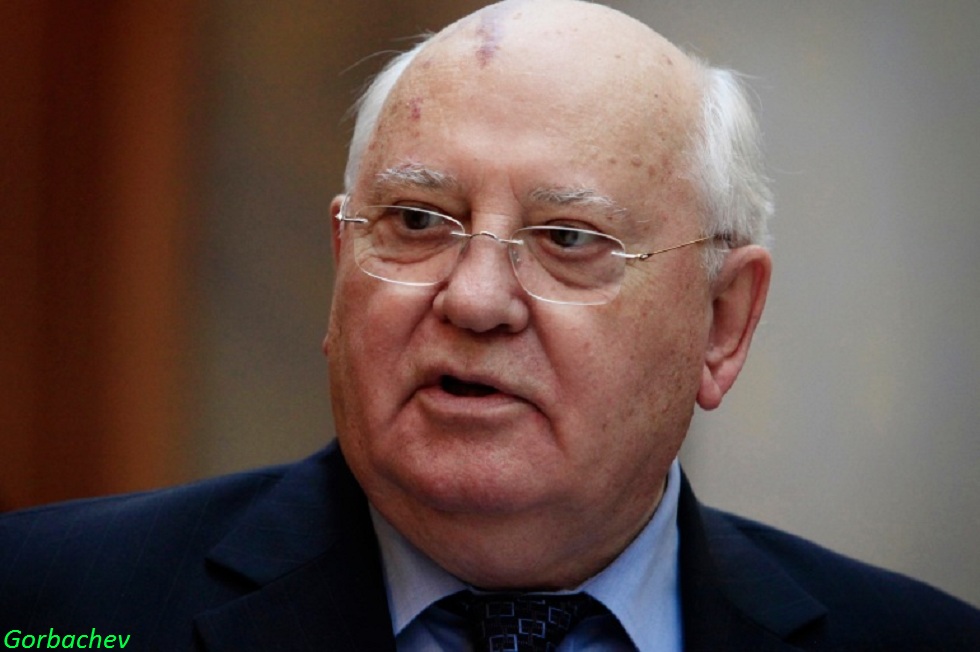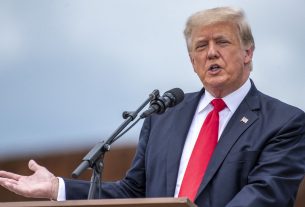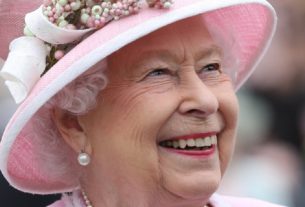- Gorbachev was Soviet president for six years
Russian President Vladimir Putin sent a telegram on Wednesday with deep condolences to the family and friends of Mikhail Gorbachev, the first and only USSR president who died at the age of 91 on Tuesday.
The former leader died at the Central Clinical Hospital on August 30.
“Mikhail Gorbachev was a politician and statesman who played an influential role in world history.” the telegram published on the Kremlin website reads.
“He led this country in a period of radical changes, as well as large-scale challenges faced by foreign policy, economy and society. He felt reform was needed and strived to come up with his own solutions to the burning issues.”
In his telegram, Putin also highlighted Gorbachev’s major humanitarian, charitable and educational activities.
Gorbachev held the Soviet presidential post for six years. The politician proclaimed a new course almost immediately after his appointment as Secretary General of the Communist Party’s Central Committee in 1985, then he headed the Supreme Soviet of the USSR.
He proposed to establish the post of president and abolished the Constitutional article on the leading role of the party. The Russian words of his invention, ‘perestroika’ and ‘glasnost’, entered many languages at the time.
Gorbachev resigned as the President of the Soviet Union on December 25, 1991 and that marked the end of the USSR.
The first and the last Soviet president, will be buried at Moscow’s Novo-Dyevitchiye cemetery, next to his wife, a source familiar with the wishes of the former president’s loved ones told TASS on Tuesday.
“Mikhail Sergeyevich will be buried, as he willed, next to his spouse Raisa at the Novo-Dyevitchiye cemetery,” the source said.
A source in the politician’s entourage told TASS on June 20 that Gorbachev was constantly observed by the Central Clinical Hospital doctors. According to the source, the former president was hospitalized in 2020, “at the very beginning of the coronavirus pandemic” at the doctors’ request.
He proclaimed a new course almost immediately after his appointment as Secretary General of the Communist Party’s Central Committee in 1985, then headed the Supreme Soviet of the USSR, proposed to establish the post of president and abolished the article of the Constitution on the leading role of the party.
He resigned his post of the President of the Soviet Union on December 25, 1991. The Soviet Union ceased to exist at the same time.
Gorbachev was born on March 2, 1931 in the village of Privolnoye, Stavropol Region, to a peasant family.
He drove a combine harvester before entering the law school of Moscow State University and became a member of the Communist Party of the Soviet Union in 1952. After his graduation in 1955, he held a number of posts in the Young Communist League (Komsomol) and party organizations in Stavropol, rising to the position of first secretary of the regional party committee in 1970.
He became a member of the Central Committee of the Communist Party in 1971 and was appointed a party secretary of agriculture in 1978. In 1980 he was promoted to a full member of the Politburo, the highest decision-making authority in the Communist Party.
After the death of Konstantin Chernenko, the general secretary of the Communist Party, Gorbachev, the youngest member of the Politburo, was elected as his successor in March 1985.
When he became the Soviet leader, he launched perestroika (“restructuring”) and pushed through economic and political reforms, including privatization of state-owned property and legalization of individual enterprise.
In 1986, he introduced the policy of glasnost (openness) aimed at reducing censorship and bringing freedom of expression to the media.
In foreign affairs, he cultivated warmer relations with the West and initiated the withdrawal of Soviet troops from Afghanistan.
He also signed a number of agreements with western leaders on the reduction of nuclear weapons. His reforms in foreign policy led to the democratization of the eastern European bloc and the end of the Cold War.
In 1990 he was awarded the Nobel Peace Prize “for the leading role he played in the radical changes in East-West relations.
As the Communist Party was losing power and prestige, he created the new legislature, the Congress of People’s Deputies, which elected him first president of the USSR on March 15, 1990.
In the late 1980s, economic problems in the Soviet Union became more serious and calls for independence of the USSR constituent republics began to increase. In order to stop the country’s collapse, Gorbachev proposed signing a new union treaty that would have turned the USSR into a federation of independent republics with a common president, foreign policy and military.
In August 1991 a group of Communist Party hardliners staged a coup to seize the control of the country from him and disrupt the signing of the new treaty. After the coup failed, he resumed his duties, but his position had been irretrievably weakened.
On December 8, 1991 the leaders of the RSFSR, Ukraine and Belarus, Boris Yeltsin, Leonid Kravchuk and Stanislav Shushkevich met in the Belovezhskaya Pushcha National Park in Belarus to sign an agreement to establish a Commonwealth of Independent States.
On December 25, 1991, he stepped down as president of the Soviet Union, which ceased to exist that same day.
Out of office, he established his International Foundation for Socio-Economic and Political Studies, or “Gorbachev Foundation” in 1992.
In 1996, he ran for president of Russia but garnered just 0.51% of the vote. He remained active in public life and published several dozen books.
Gorbachev and his wife Raisa were married for 46 years before her death of leukemia in 1999.
The former Soviet leader is outlived by his daughter Irina (born in 1957) and two granddaughters, Ksenia and Anastasia.
Russian News Agency TASS





